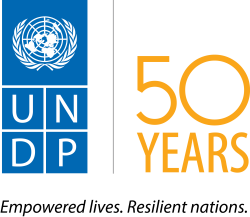Event Summary
Organization: United Nations Development Programme, New York
Session Leads
- Jianping Yan, UNDP
- Rajesh Sharma, UNDP
- Angelika Planitz, UNDP
Speakers
- Stephane Hallegatte, Climate Change Group, World Bank Group, “Global Analysis of Social Vulnerability and Resilience of the Poor - From a Well-being Perspective”
- Krunoslav Katic, UNDP Croatia, “Developing Croatia-specific Methodology for Assessing Social Vulnerability”
- Richa Sharma, Independent consultant based in India, “Understanding the Social Vulnerability of Children and Youth to Disasters – Practice from the Philippines”
- Cecilia Costella, Senior Technical Advisor, Red Cross Red Crescent Climate Centre, “Designing Social Protection Mechanisms - Needs and Requirements for Social Vulnerability Information”
- Till Zbiranski, OECD, “Big Data for Social Study - Introduction to PARIS21 Innovations”
Description
Disasters impact different people differently. The socially vulnerable are most at risk from disasters and consequently also suffer most from their impacts. The assessment of disaster impacts on vulnerable population groups is now possible; however, we do not yet systematically quantify the social dimensions of vulnerability or integrate these aspects in disaster risk assessments.
This session dealt with the issues and challenges in characterizing and mapping socially vulnerable groups within a disaster risk assessment framework by considering the various dimensions of social vulnerability (e.g. income disparity, class, race/ethnicity culture, gender, age, disability, health, language, literacy, families and households). It discussed sources of information on social vulnerability (i.e. census, pre- and post-disaster studies, data created in the community, etc.); reviewed tools for assessing social vulnerability (e.g. vulnerability indices, community vulnerability/capacity mapping, and computer-aided/GIS based platforms); and looked at the potential of recent innovations, such as big data analytics, in improving the identification and understanding of social vulnerabilities.
Through the session, the participants gained better understanding of the general framework of social vulnerability and why considering social vulnerability is necessary in order to reduce risks and increase resilience.
Presentations
Introduction to social vulnerability
Socio-economic resilience to natural disasters: A framework for risk-informed development planning – Stephane Hallegatte, Mook Bangalore, Adrien Vogt-Schlib, World Bank Group
Comparable social vulnerability profiling – Case study Croatia – Krunoslav Katic, UNDP
Understanding the social vulnerability of children and youth to disasters – Practice from the Philippines – Richa Sharma, Independent Consultant, Social Vulnerability
The role of social protection in addressing social vulnerability to climate risk – Cecilia Costella, Red Cross Red Crescent Climate Centre
Of social vulnerability and statistical capacity: PARIS21 Innovations Marketplace
Ignite
By Cecilia Costella, Red Cross Red Crescent Climate Centre

